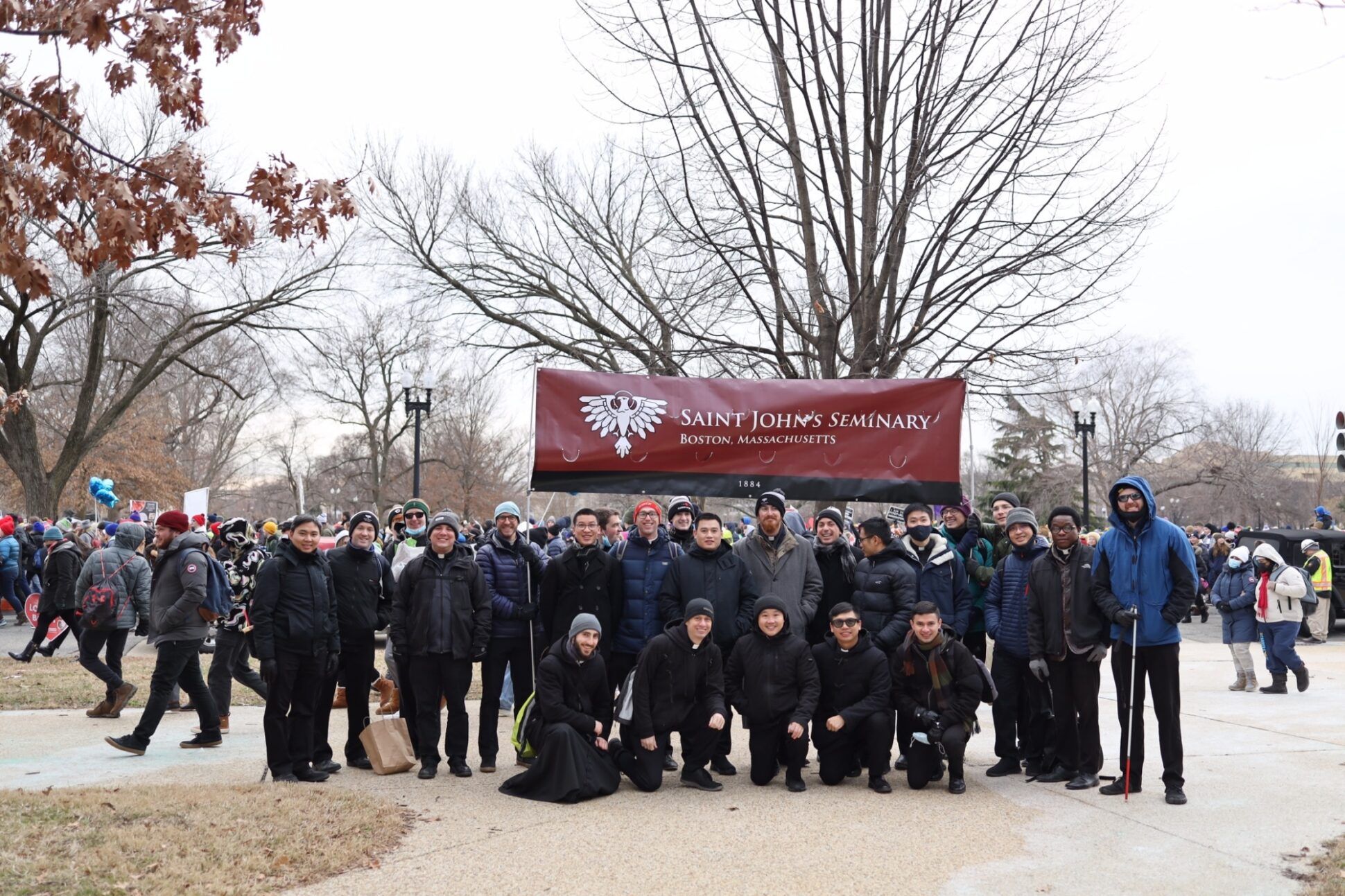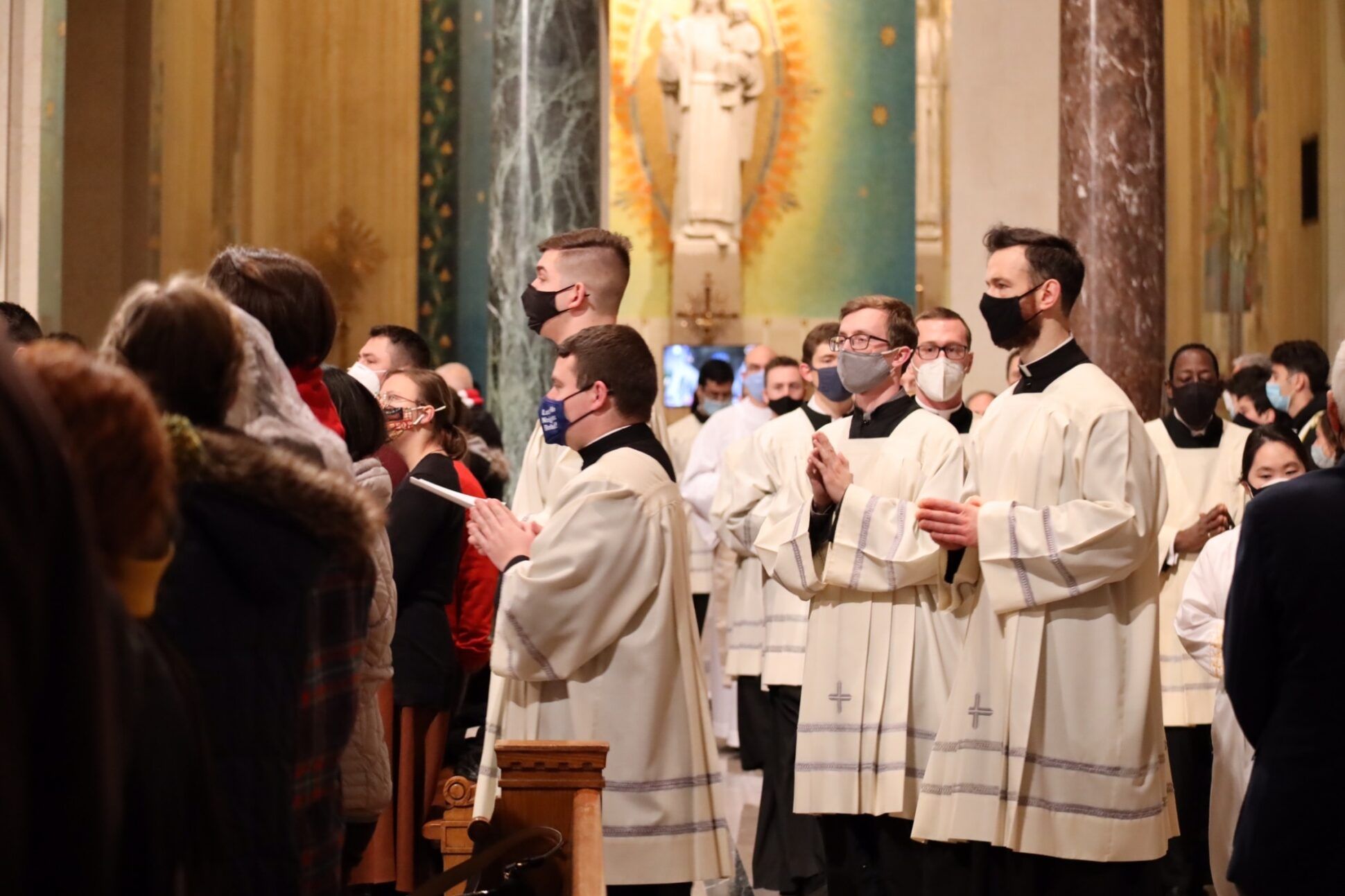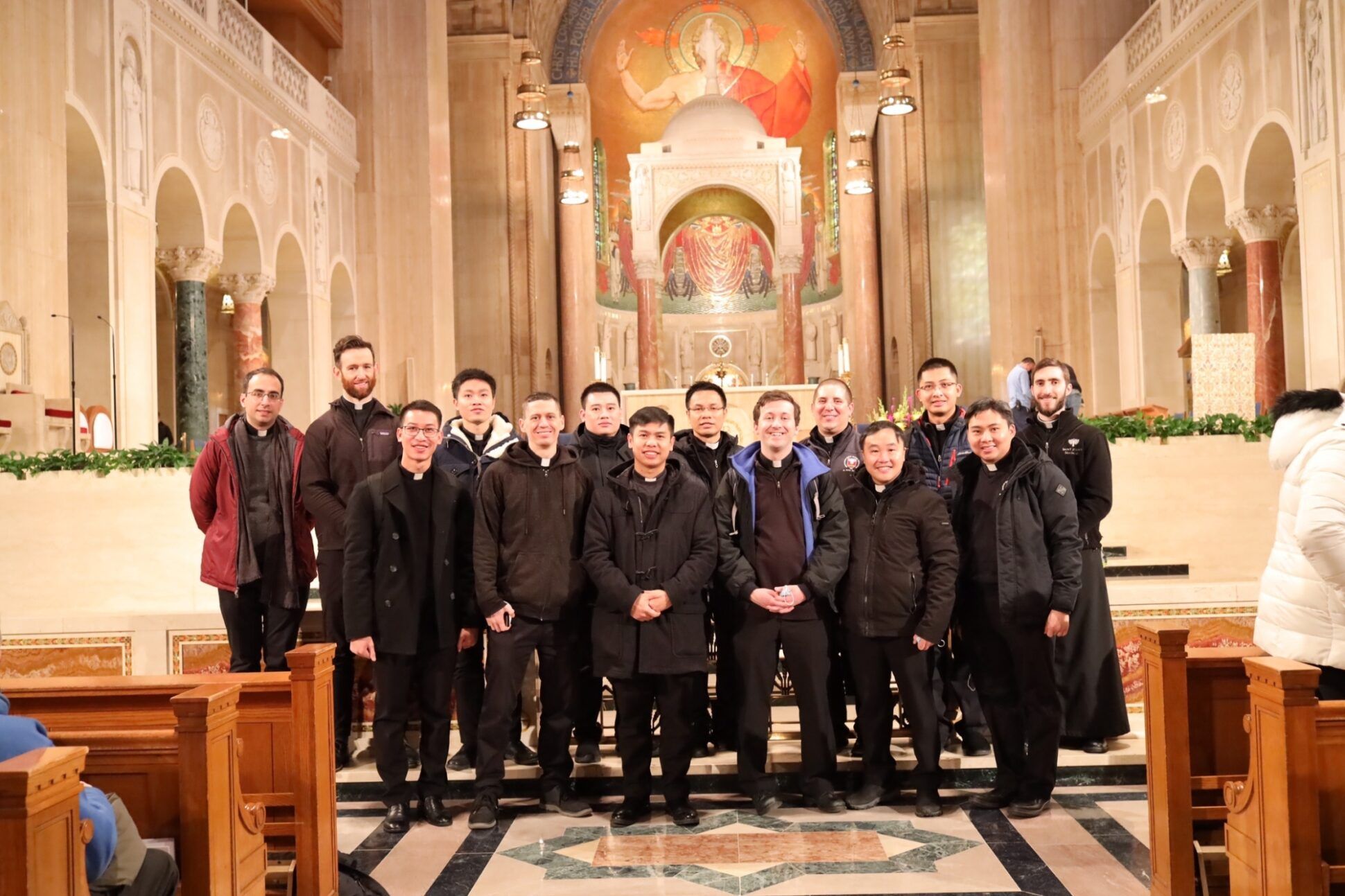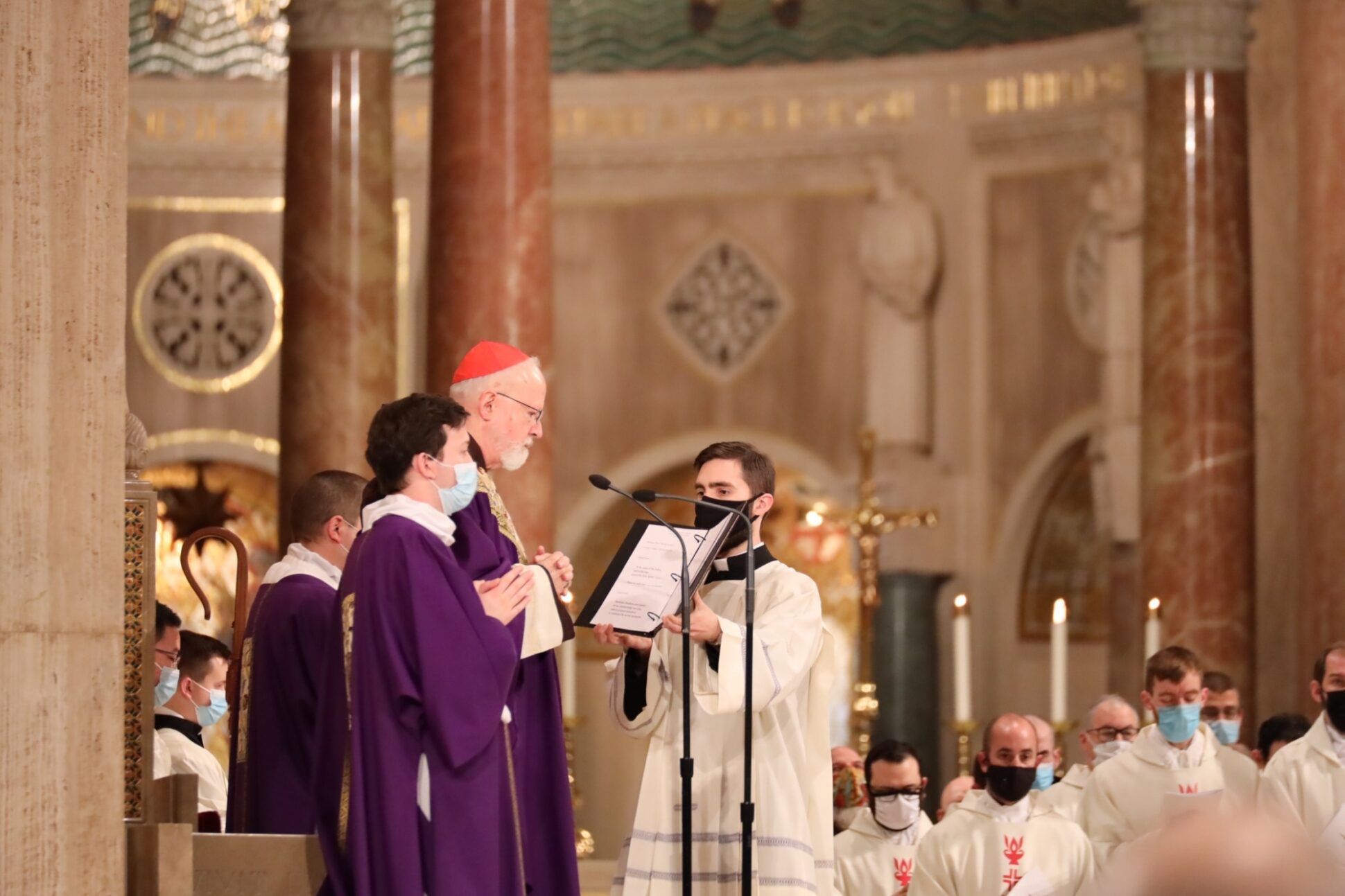Our seminary community joined thousands of others at the annual March for Life in Washington D.C. on January 21, 2022.
The great tragedy of abortion can hardly be overstated. It is not only the gravest loss of innocent human life that we have ever seen; it also represents the catastrophic collapse and corruption of the family. Behind the principal loss of the millions of children are millions of mothers and fathers who are marred by the trauma of losing a child. Their suffering extends to the entire nation: nurses, doctors, families, friends, siblings, entire generations lost. We hear the full extent of this harrowing sorrow in the aching words of Scripture:
A voice is heard in Ramah, lamentation and bitter weeping. Rachel is weeping for her children; she refuses to be comforted for her children, because they are no more. -Jeremiah 31:15
Why? What does a group of men—men preparing for celibacy—contribute to this march? What of this agony could we possibly share? A change in policy that protects these children and their parents from this indescribable pain would be a cause of great joy, but the wound is far deeper than some political agenda.
At the heart of our march is not reproach. There is no condemnation, judgment, or critique. We do not pray for suppression, restriction, or control of women. Though we hope for change, our pleading is for mercy: mercy for the children who have died; mercy for their parents, especially their mothers who have so often been the object of neglect, abandonment, or abuse; mercy for the doctors, nurses, and institutions that are blinded to the precious life in the womb that should be carefully and tenderly treasured.
We cry out to the Divine Physician: “For the sake of His sorrowful Passion have Mercy on us and on the whole world.” We pray “Forgive us,” Father, for the lives we have taken and the times we have neglected the cry of all those mothers in need. We seek your aid, Mary; “pray for us sinners,” us fathers who have forsaken our role as guardians and protectors of our own families. We march toward this Calvary, begging the Father, “Forgive them for they know not what they do.”
These are the prayers in which our hope is grounded. And when even just one prayer is heard, one child is saved, one mother is healed, one doctor is moved, one father converted—our efforts will be justified. There is simply no quantity of time, money, effort, or tears that would ever be equal in value to that answer.
The Crucifixion of our dear Jesus, the spilling of his Precious Blood, and the thirst He expressed with His dying breath, were all for us, His Children. What is the purpose of a man—what is the sacred duty of His priest—if not to spend his whole being in every effort to satisfy so great a Love?
By: Mr. Marcelo Ferarri
Second Theology





